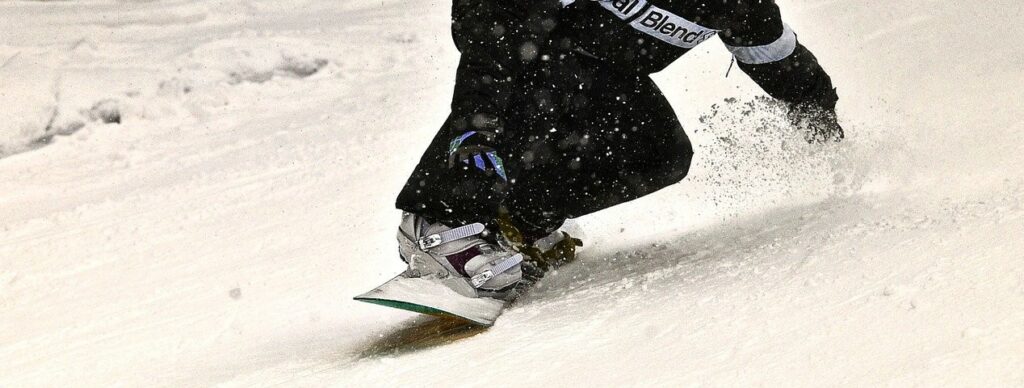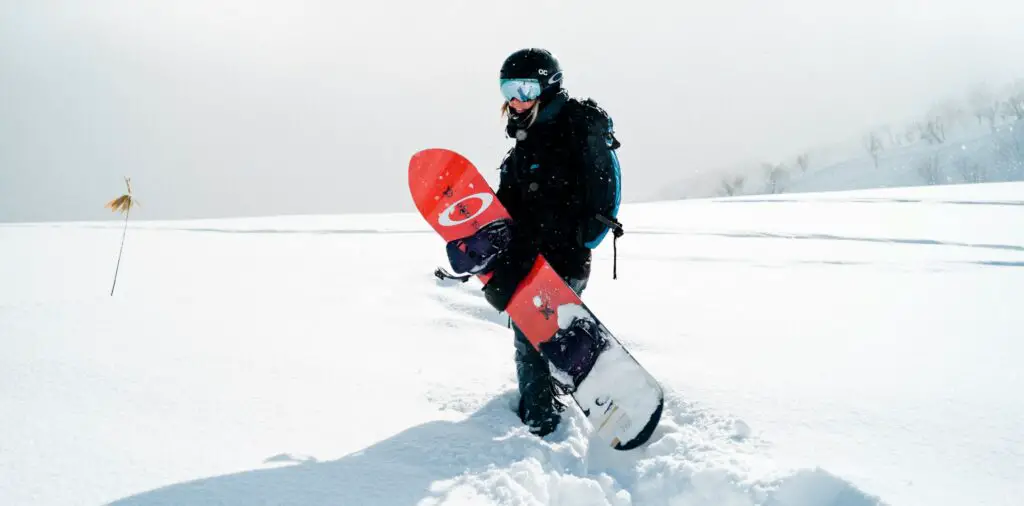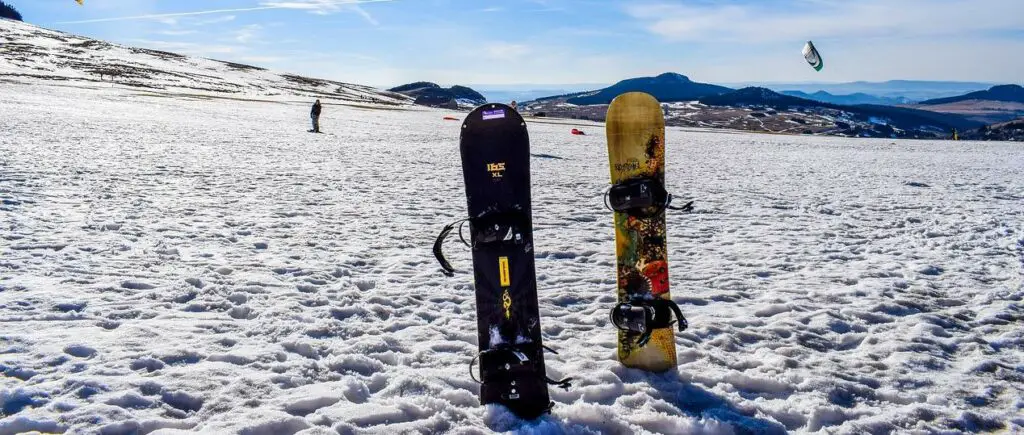When packing all your snowboarding equipment, it can end up weighing quite a bit. In this article I’ll give you a guide to how much snowboards actually weigh, and how the weight of a snowboard affects the performance and suitability for different snowboarders.

Average Snowboard Weight
Snowboards weigh around 6-9 lbs (2.7-4.1 kg) on average and the bindings typically weigh 2-3 lbs (0.9-1.4 kg). A typical 158 cm snowboard weighs approximately 10-11 lbs (4.5-5.0 kg) including the bindings. Children’s snowboards are much shorter and usually only weigh 4-6 lbs (1.8-2.7 kg) on average not including the bindings.
The weight of a snowboard is affected by the following:
- Material: the most typical construction is fiberglass with a wooden core, which are heavier than more expensive carbon fiber snowboards.
- Width: some snowboards are wider such as park/ freestyle snowboards, and others which are designed to only be used on-piste are narrower.
- Length: snowboards vary in length between 80-180 cm. Children’s snowboards are typically between 100-130 cm, women’s snowboards are generally between 140-155 cm and men’s snowboards are usually between 150-170 cm).
Average Snowboard Weight by Length
| Snowboard Length | Average Weight (kg) | Average Weight (lbs) |
| 140 cm | 2.7-3.4 kg | 6.0-7.5 lbs |
| 150 cm | 2.9-3.6 kg | 6.5-8.0 lbs |
| 160 cm | 3.2-3.9 kg | 7.0-8.5 lbs |
| 170 cm | 3.4-4.1 kg | 7.5-9.0 lbs |

Does the Weight of a Snowboard Matter?
The weight of a snowboard affects how it feels to manoeuvre.
Pros of Lighter Snowboards:
- Easy to carry and transport
- Requires less effort to turn
Pros of Heavier Snowboards:
- Feels more stable (less prone to deflection)
- More stiff and stable at high speeds
The weight is really an indirect variable, as it is influenced by the length primarily which is one of the primary factors to consider when purchasing a snowboard. You should make sure to choose a snowboard which is the correct size for your height and weight (more on this in the next section).

What Size Snowboard Do You Need?
The size (length and weight) snowboard you need depends on three variables:
- Your height
- Your weight
- Your ability level
More advanced, taller and heavier snowboarders should choose a longer and heavier snowboard, whereas less experienced, shorter and lighter snowboarders should choose a shorter and lighter snowboard.
Here are charts (imperial and metric measurements) which give you a range to consider. Find the bracket you fit into the closest and then go towards the upper limit if you’re more advanced, and the lower limit if you’re less experienced.
| Rider Height | Rider Weight | Ideal Snowboard Size |
| 4’10” | 100-120 lbs | 130-136 cm |
| 5’0″ | 110-130 lbs | 135-141 cm |
| 5’2″ | 120-140 lbs | 140-146 cm |
| 5’4″ | 130-150 lbs | 145-151 cm |
| 5’6″ | 140-160 lbs | 160-156 cm |
| 5’8″ | 150-170 lbs | 155-161 cm |
| 5’10” | 160-180 lbs | 160-166 cm |
| 6’0″ | 170-190 lbs | 165-171 cm |
| 6’2″ | 180-200 lbs | 170-176 cm |
What About the Weight of Other Equipment?
Here is a table showing the average weight of all snowboarding equipment.
| Snowboarding Equipment | Average Weight (kg) | Average Weight (lbs) |
| Snowboard | 3.4 kg | 7.5 lbs |
| Bindings | 1.2 kg | 2.6 lbs |
| Pair of Snowboard Boots | 2.2 kg | 4.9 lbs |
| Helmet | 0.45 kg | 1.0 lbs |
| Snow Goggles | 0.4 kg | 0.9 lbs |
| Total | 7.65 kg | 16.9 lbs |
